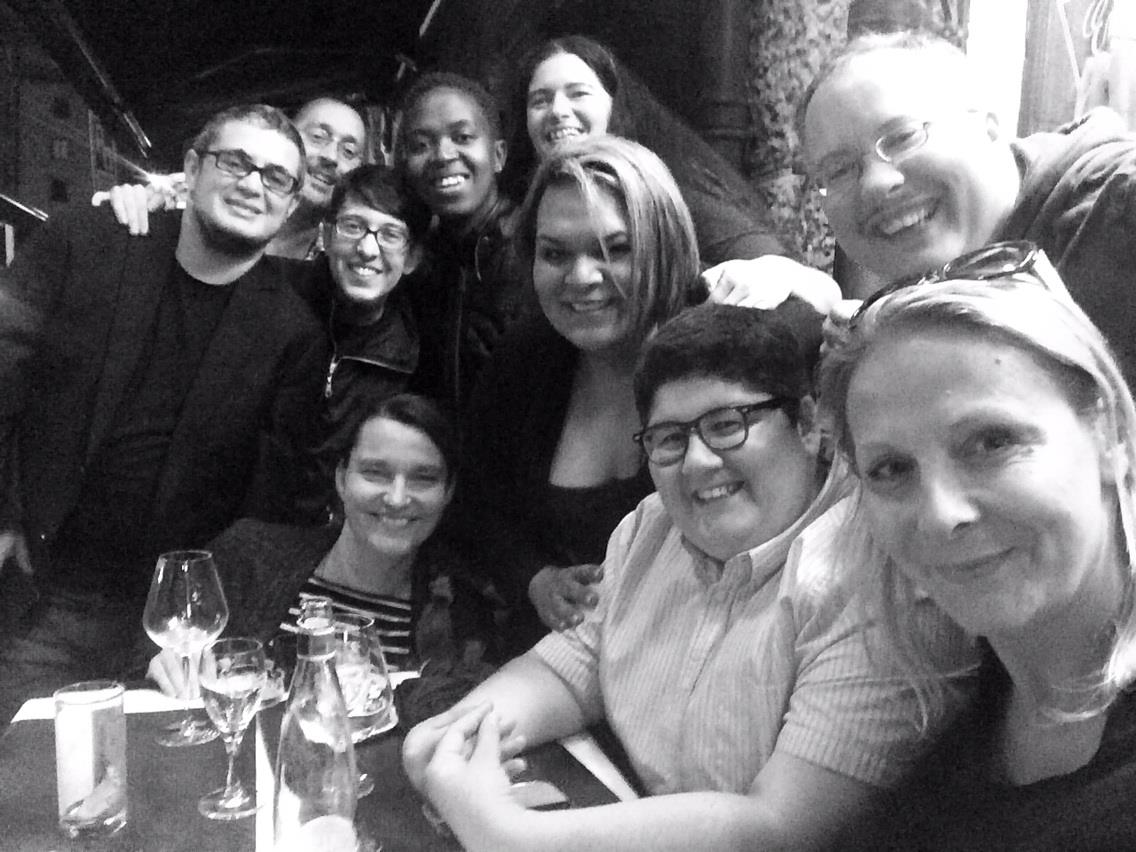Originally published at Intersex Day. Available at: https://intersexday.org/en/mauro-cabral-marks-bodies/

Thirty years ago, in a small pediatric clinic that still works at Baigorrí Street, Córdoba, Argentina, a gynecologist discovered that my body was different from those of other girls who were my same age. Throughout the years that followed that afternoon many things happened: consultations with other doctors, checkups, examinations under general anesthesia, blood tests, ultrasounds, psychotherapy, surgery, dilations. Two wide and deep scars sprang from my pelvis and spread upward to the navel; between and around them skin grew numb to the touch. Inwardly, it grew pain that lasted thirty years.The gynecologist, the endocrinologist, the surgeon and his team, they were all nice people, polite and well-meaning, but absolutely incapable of accepting what I had to say; they could not accept that my body was fine as it was, and could not accept that I identified myself as a boy who liked boys. From their perspective, my flesh, my identity, my sexuality, my whole life was coded in terms of a diagnosis – and, according to that diagnosis, I was defined as malformed.

From its very beginning the intersex movement has struggled to subvert the way in which people speak of those bodies whose sexual characteristics vary from female or male standards. We have celebrated and politically re-appropiated terms such as hermaphrodite and intersex. We have challenged the reduction of intersex issues to gender identity issues. We have confronted the sexed limits of ‘human’ every time we have demanded the fulfillment of our human rights, and we have defied the imaginary right to ‘human’, binary appearance. We have challenged conventional definitions of ‘man’ and ‘woman’, of ‘feminine’ and ‘masculine’. We have fought to expand the narrow confines of legal recognition, and, sometimes and in some places, we have won. We have questioned the usual objectification of our biographies for theoretical and political purposes; we have confronted media representations, creating other forms of visibility. We have adopted terms that never meant to narrate our experiences, and we have redefined them forever: mutilation, rape, torture; bodily integrity, decisional autonomy, informed consent; sex.A key aspect of our work on language has been focused on medical vocabulary – and the worldview that enables that vocabulary. Once and again we have pointed out the obvious: the way that medicine defines us has a decisive role in the way in which medicine treats us. Throughout the years we have insisted on the need of depathologizing our bodies, what is to say, on the need of distinguishing between those healthy variations that we embody and those medical needs that must be addressed. In 2006 the Yogyakarta Principles called on States to “take all necessary legislative, administrative and other measures to ensure that no child’s body is irreversibly altered by medical procedures in an attempt to impose a gender identity without the full, free and informed consent of the child in accordance with the age and maturity of the child and guided by the principle that in all actions concerning children, the best interests of the child shall be a primary consideration.” The same year the document known as Consensus of Chicago proposed a different vocabulary, encoding our bodies under the logic of ‘Disorders of Sex Development’.

At this point, I need enter at least three considerations about language: (1) for those who, like me, speak, write, breath, love and fight in a language other than English, decolonizing the way in which we are named multiplies to include not only medical speech but also the terms imposed by the Anglophone hegemony within international conversations on intersex; (2) the construction of an international intersex movement not only has depended – and still depends – on that hegemony, but has also considerably restricted the possibilities of other ways of communicating, including those of poetry, fiction, erotic, and other manifestations of ‘inefficient’ speech; (3) even against this double suture, the word ‘intersex’ still designates a persistent, question, a scarred question that lies from tongue to language, a scar never fully healed, constantly reopened.Last year a group of intersex activists from different part of the world decided to get involved in the process of review and reform of the International Classification of Diseases. The Classification is produced by the World Health Organization, and will be voted on in 2018 by the World Health Assembly. Of course, opening the text of the current version of the Classification we easily found out those diagnostic categories that have marked our flesh and our life; worse, when studying the proposals for the new version of the Classification we found a redoubled commitment to pathologize bodily diversity.

Those who work on intersex issues know very well that the words that define us are key and, at the same time, that those words are just the beginning. Precisely because of that, our purpose when addressing the Classification includes, but also extends beyond, proposing terminology consistent with human rights standards. We also need concrete medical protocols derived from that terminology to be fully compatible with those standards, and we need human rights violations against intersex people to be properly investigated, documented, reported, punished and and redressed. We need the World Health Organization to not only change the way in which doctors around the world study, analyze, write and speak about us, but to change radically the way in which they treat us.The document that follows was prepared after the first meeting of intersex activists on the process of review and reform of the Classification and sent to the World Health Organization for their consideration. This is an open process, and it needs you – for no voice to count more than yours, for justice to become a medical issue, for no word to mutilate anyone never again.
– by Mauro Cabral of Justicia Intersex, and co-director of Global Action for Trans Equality; @GATEDepath, icd@transactivists.org
The ICD discussion was planned and coordinated by Mauro Cabral (Argentina) and facilitated by Ruth Baldaccino (Malta). Participants in the meeting were Janik Bastien-Charlebois (Canada); Morgan Carpenter (Australia); Dan Ghattas (Germany); Holly Greenberry (UK); Natasha Jimenez (Costa Rica); Ev Blaine Matthigack (Germany); Nthabiseng Mokoena (South Africa); Daniela Truffer (Switzerland) and Markus Bauer (Switzerland).
The report establishes a set of foundational principles, and provides an overview of terminological and historical issues, before an analysis of broad and specific issues with the ICD framework and diagnoses. The submission also details human rights concerns and presents an epistemological analysis.
Translation: Mauro Cabral.
Source: http://intersexday.org/en/mauro-cabral-marks-bodies/
